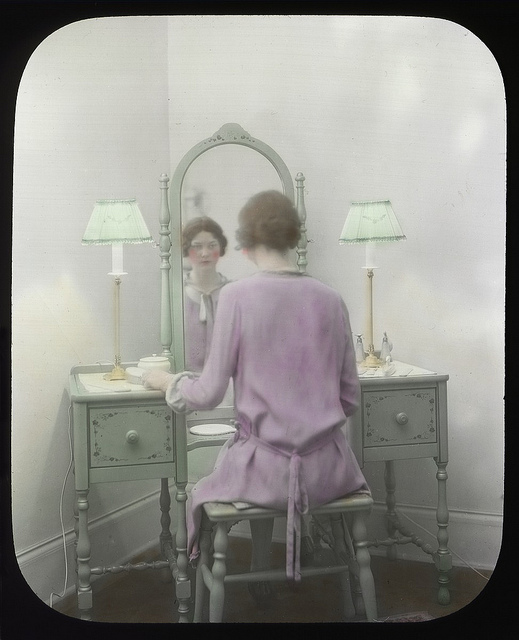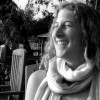There are things we know.
We know them because, at the very bottom of things, we are all the same in at least one fundamental way: we are trying to be better. Better to others and to ourselves and to the world. Better as lovers, friends, care-givers, citizens, activists. Better as humans.
We want the world to be better, healthier and happier, and we have learned that to do this, we have to work on ourselves.
And so we find books and read what wise people before us have learned about the path of (self) realization. We learn, find communities of like-minded people, meditate, pray, and set intentions. We try to tread lightly on the Earth and focus on positive outcomes.
We have also come to understand that we need to be a little bit selfish in order to be more giving.
“I often joke, half sincerely and half seriously, saying that if we wish to be truly selfish, we should be wisely selfish rather than foolishly selfish. Our intelligence can help to adjust our attitude in this respect. If we use it well, we can gain insight as to how we can fulfill our own self-interest by leading a compassionate way of life.”
We understand that we need to care for ourselves so that we can care for and serve others, that we can’t relegate ourselves to the far-off, dusty corners of the room and then expect to be a radiating presence when we step out into the world.
We have learned, in other words, that to self-nurture can possibly save the world.
But. But. What is most simple can be the most difficult thing to achieve.
How do we typically understand self-care?
We try to eat right, get enough exercise, breathe deeply, take time for ourselves, walk in bare feet on the grass, hug a tree, do creative things. We purge our spaces and try to simplify our lives. These are great things to do.
Still, we are consumed by the feeling that it is not enough, that nothing is happening, that we are not free of the darkest parts of us, ever-threatening to spill over and cause destruction from the inside out.
Maybe we need to simplify even further. Get down the very bottom, to the deepest, most basic nitty gritty of it all.
We want to learn how to love ourselves more? (Yes—self-care and self-nurturing necessarily lie on a glorious pillar of self-love).
How about starting with saying it?
I love you.
It’s not too difficult to tell ourselves that we should love ourselves, that self-love is our birthright. Right?
Yes, I love myself.
It’s not too hard to say it and even be a little bit convinced.
But now let’s try this: let’s go stand in front of a mirror.
Take a few moments, breathe deeply, and take a really good look. Contemplate what is right there. Notice the lines, the symmetries, the colours and folds of us, the changes. Make discoveries. It might be shocking, disappointing, refreshing, terrifying, exciting.
It probably won’t be boring, because we don’t often take the time to try and examine those aspects of us that manifest physically and ever-so-slowly on a daily basis. We have images of ourselves based on our thoughts and memories, on our best photographs scattered throughout the social media universe, and through what we’ve been told by others. So we come to feel we “are” a certain way that that this “way” is unchanging.
None of this is in the mirror staring back at us. The mirror can’t show us our memories, only what is there, reality as it is, if we’re being truly present to the moment. And we want to love all of it.
The first time I stared into my own eyes with the intention of telling myself “I love you,” I was startled by how reluctant I was, how I felt like I was taking up far too much space. I felt so incredibly naked, and a stream of thoughts and feelings coursed through me.
You’re not worth this exercise.
Go away and work on yourself some more first.
This is ridiculous.
(in a tiny voice) But I don’t love myself, so how can I say it?
I brushed aside my terrible fear of telling myself what I say so freely to the people in my life who matter to me so much. I used my thinking mind to convince me that it was perfectly alright for me to do this exercise, that it’s meant for everyone. That I truly believe everyone is worthy love, and that this must include me.
Say it out loud, I told myself. It will be much more effective. I knew this because of how difficult the prospect was.
My face in the mirror looked at me expectantly, and very shyly.
“I love you.”
They were the loudest words I’d ever heard. Almost an intrusion. Love bit right into the gentle space of a world I’d concocted for myself that offered many paths of least resistance, where self-love was being shelved for another day.
Tears flooded my eyes instantly. I could feel the little girl inside of me filling up with hope and an openness I hadn’t felt in a long time.
I love you.
I love you.
I love you.
I watched the tears roll down my cheeks, and a smile come to my lips; I noticed my mouth had a tendency to purse in a way that reminded me more and more of my mother’s mouth.
I come from my mother.
I come from a pure vessel of love.
I come from an enormous, aeons-long lineage of love. A human legacy of love.

It’s the simplest thing we can tell ourselves, and also the most shocking, and possibly the most activist-oriented and transformational thing we can do for ourselves, if we want to really begin
“I love you” is a great, powerful, tumultuous gateway to a universe full of infinite love, and what a service we’ll be doing the world if we can find our way there.
Love elephant and want to go steady?
Sign up for our (curated) daily and weekly newsletters!
Author: Tammy T. Stone
Editor: Catherine Monkman
Photo: Seattle Archives at Flickr



Read 9 comments and reply